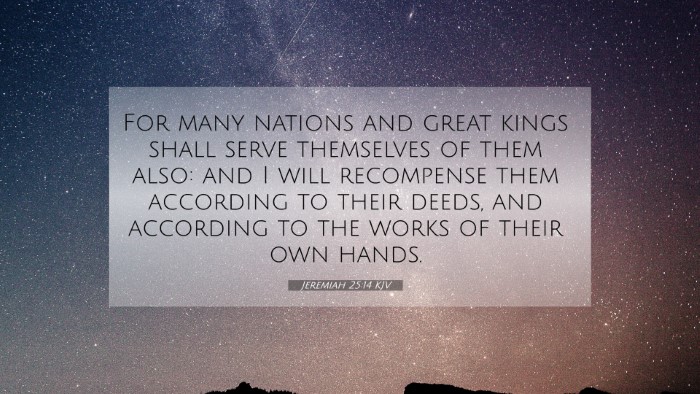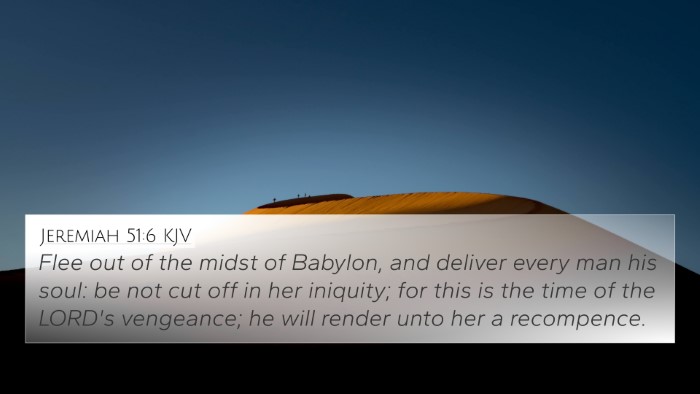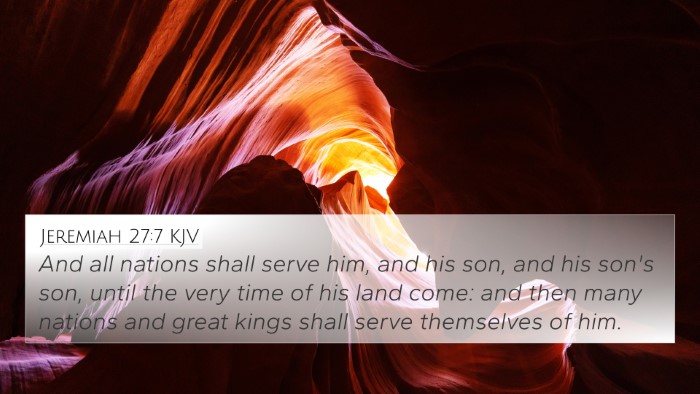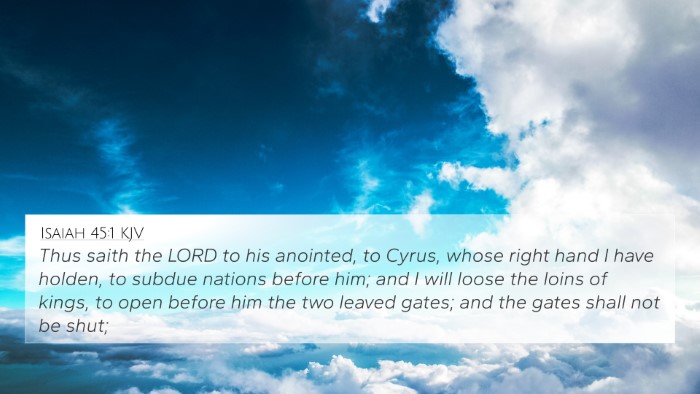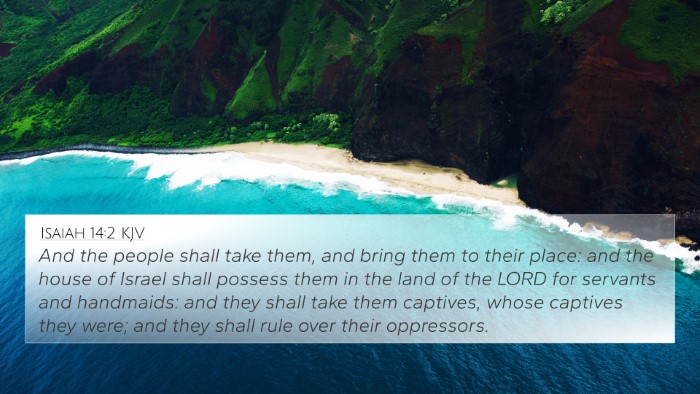Understanding Jeremiah 25:14
Jeremiah 25:14 states: "For many nations and great kings shall serve themselves of them also: and I will recompense them according to their deeds, and according to the works of their own hands."
This verse speaks to the judgment that God will execute through foreign nations upon His own people, the Israelites. Within the context of the whole of Jeremiah, this indicates God's ultimate sovereignty and the theme of divine justice.
Overview of Commentary Insights
- Matthew Henry: Henry emphasizes that God utilizes other nations as instruments of His will, illustrating that no nation is outside God’s control. The judgment here is not just punitive but serves to call the people back to repentance.
- Albert Barnes: Barnes points out the inevitability of God’s judgment upon the people who have turned away from Him. The statement highlights the principle of reaping what one sows, referred to in Galatians 6:7, linking sinful actions to deserved consequences.
- Adam Clarke: Clarke elaborates on the concept of recompense based on one's actions. He notes the broader prophetic implications, suggesting that the predicaments faced by Israel serve as a warning to other nations regarding God’s displeasure towards sin.
Key Themes in Jeremiah 25:14
- Divine Sovereignty: The verse illustrates God’s control over all nations, highlighting that He appoints leaders and rulers according to His divine plan.
- Judgment and Accountability: Emphasizing that nations and individuals must face the consequences of their actions, both good and bad.
- Restoration and Hope: Implicitly contained in the warning is the promise of eventual restoration if repentance occurs.
Cross-References and Connections
Jeremiah 25:14 connects with several Bible verses, offering profound insights and guiding themes throughout scripture:
- Galatians 6:7: "Be not deceived; God is not mocked: for whatsoever a man soweth, that shall he also reap." - This verse resonates with the theme of divine recompense found in Jeremiah 25:14.
- Isaiah 10:5: "O Assyrian, the rod of mine anger, and the staff in their hand is mine indignation." - A parallel showing God using foreign powers for His purposes.
- Ezekiel 30:3: "For the day is near, even the day of the LORD is near, a cloudy day; it shall be the time of the heathen." - Reflecting God's judgment through nations.
- Matthew 24:7: "For nation shall rise against nation..." - In this New Testament verse, Jesus reflects on the broader implications of divisions among nations, echoing the theme of accountability.
- Romans 1:18: "For the wrath of God is revealed from heaven against all ungodliness and unrighteousness of men..." - Emphasizing that divine judgment is a theme consistent throughout scripture.
- Revelation 16:19: "And the great city was divided into three parts, and the cities of the nations fell..." - This verse alludes to the ultimate consequences faced by nations opposing God.
- 2 Chronicles 36:15-16: "And the LORD God of their fathers sent to them by his messengers, rising up betimes, and sending; because he had compassion on his people..." - This reflects God's intention to call His people back, consistent with the theme observed in Jeremiah.
Understanding Connections Between Biblical Texts
The connections between Bible verses like Jeremiah 25:14 and others can be examined closely, providing a comprehensive understanding of biblical themes such as accountability, divine judgment, and God's sovereignty.
Using a Bible concordance or a cross-reference Bible study guide can enhance the reader's understanding of how these verses relate not only within the Old Testament but also link back to New Testament teachings.
Tools for Inter-Biblical Dialogue
Engaging in studies using Bible reference resources can facilitate a deeper understanding of themes such as repentance and God’s ultimate plan for redemption. Some effective ways to delve deeper include:
- Employing Bible chain references to trace themes throughout scripture.
- Utilizing a Bible cross-reference system to uncover thematic connections.
- Exploring cross-referencing Bible study methods to analyze links between passages.
Conclusion
Jeremiah 25:14 serves as a powerful reminder of God's sovereignty and the serious consequences of a nation’s disobedience. By recognizing connections between verses, we can uncover a richer understanding of scripture. The verse stands as a call to apply these lessons in our lives, drawing connections between historical judgment and contemporary spiritual truths.


